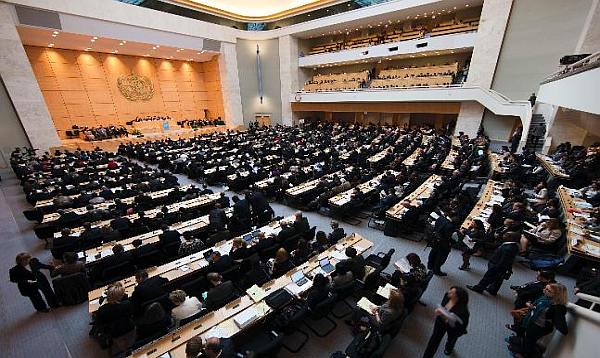Geneva, Switzerland - United States Health and Human Services (HHS) Secretary Kathleen Sebelius and Mexico Secretary of Health Salomon Chertorivski announced a series of steps to strengthen health security cooperation between the two neighboring countries. The health secretaries outlined these efforts during the 65th Session of the World Health Assembly in Geneva, Switzerland.
"The US and Mexico have had a long and close relationship in supporting and improving our ability to respond to public health events and emergencies of mutual interest when they arise," Secretary Sebelius said. "The trade links between our two countries, our common border, and the high degree of trade in food products speak to the need for close bilateral cooperation in health security for both of our nations."
"It is important to strengthen the programs of regulation and surveillance of medical products and health services on behalf of public health. International collaboration and the development of new strategies will create a more effective process that protects against health risks," Secretary Chertorivski said. "Mexico is committed to continue working to develop the best tools and procedures for the care and control necessary to maintain the best health possible for the population."
The two health secretaries signed a declaration formally adopting a shared set of technical guidelines that both countries will follow to respond to public health events and emergencies of mutual interest. The guidelines describe how the two nations will coordinate the exchange of information, and how they complement the International Health Regulations, which call for neighboring countries to develop accords and work together on shared epidemiologic events and public health issues.
The United States Centers for Disease Control and Prevention (CDC) and Mexico's General Directorate of Epidemiology led the development of the guidelines, along with support from the HHS Office of the Assistant Secretary for Preparedness and Response, and Mexico's Secretariat of Health.
Secretaries Sebelius and Chertorivksi also renewed an agreement between the United States and Mexico that strengthens existing scientific and public health activities related to the regulation of food safety, including products and feed for food-producing animals.
This arrangement recommits the two countries to communicate on food safety and to identify areas for coordination and collaboration between several US and Mexican agencies; the United States through the FDA and the US Department of Agriculture; and Mexico through the Secretariat of Health; through its Federal Commission for the Protection Against Sanitary Risk; its Secretariat of Agriculture, Livestock, and Rural Development; Fisheries and Food; and through its National Service of Health, Food Safety and Agro Food Quality.
The renewed agreement is evidence of the ongoing commitment to help ensure that the foods for our populations as well as foods traded between our countries are safe and wholesome.
Finally, Secretary Sebelius presented Secretary Chertorivksi with a plaque welcoming the Mexican Secretariat of Health's National Institute of Epidemiological Diagnosis, and Reference as a member of CDC's Laboratory Response Network (LRN.)
Mexico is the fourth country to join the LRN along with Canada, Australia, and the United Kingdom. This achievement is a result of Mexico's upgraded capabilities to respond quickly to acts of biological threats, emerging infectious diseases, and other public health threats and emergencies.


